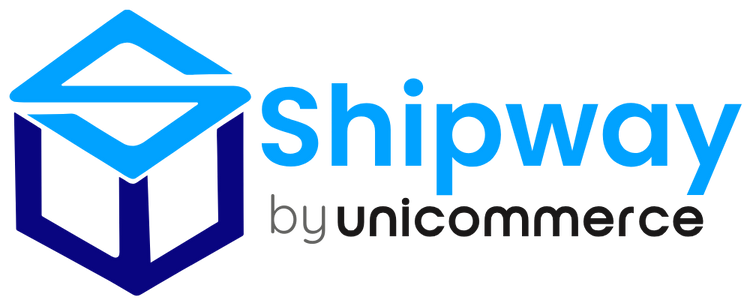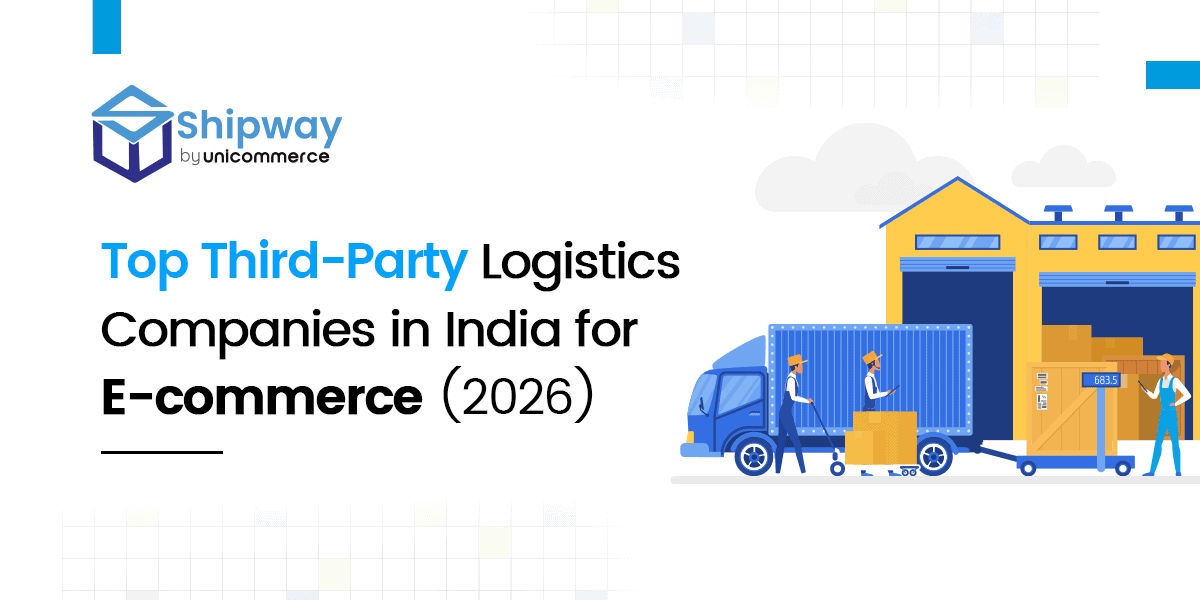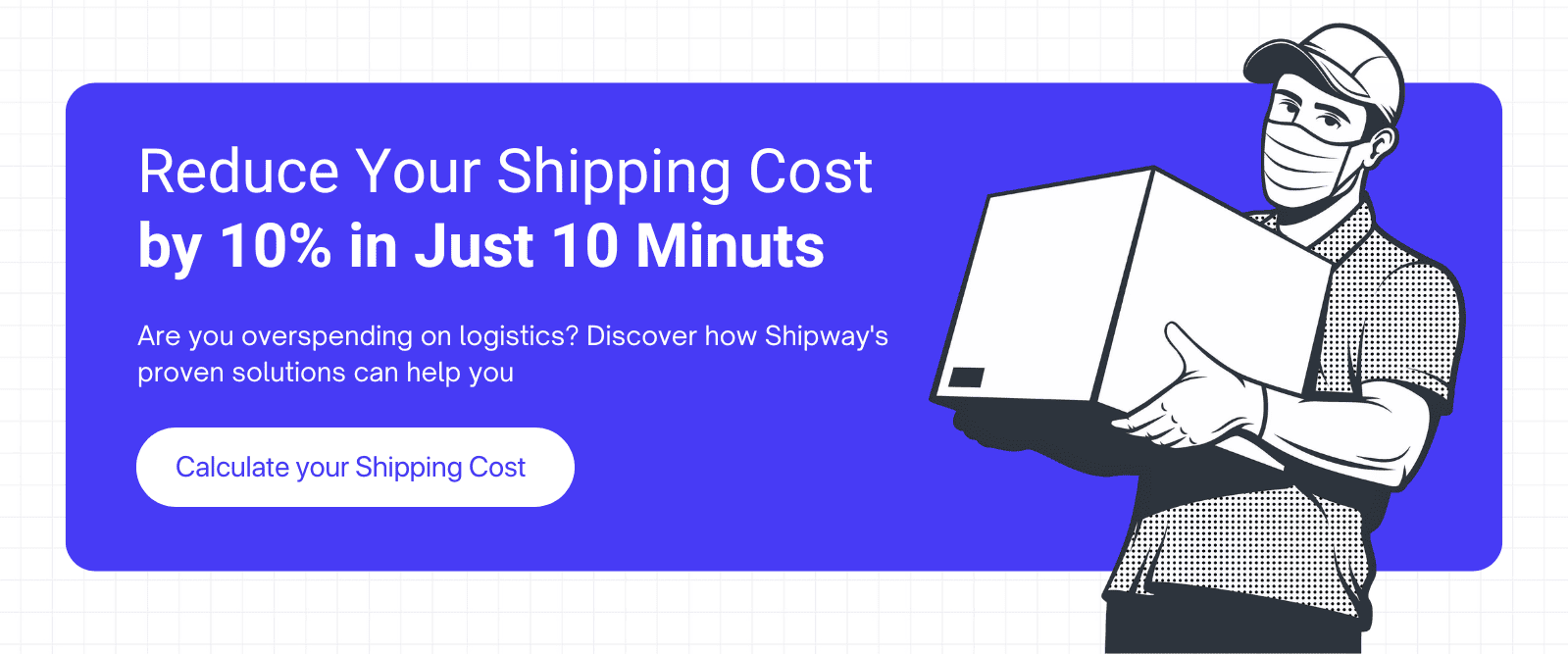Choosing the right third-party logistics company is crucial for any eCommerce business in India. A reliable 3PL partner ensures faster deliveries, secure handling of products, cost-effective operations, and seamless integration with your online store. By outsourcing warehousing, fulfillment, and shipping to an expert 3PL provider, online businesses can focus on growth, marketing, and customer engagement while maintaining high service standards.
Who are the top third-party logistics companies in India?
The leading third-party logistics companies in India include Shipway, Delhivery, FedEx, Blue Dart, DHL, Ecom Express, and Allcargo Logistics. These companies provide end-to-end solutions such as order fulfillment, warehousing, inventory management, last-mile delivery, COD handling, and return management, making them ideal partners for growing eCommerce brands.
What makes a 3PL partner reliable for eCommerce?
A reliable third-party logistics company combines nationwide coverage, fast delivery, secure product handling, and real-time tracking. Additional factors include API integration for order management, efficient RTO/NDR handling, flexible solutions for heavy or fragile shipments, and strong customer support. Choosing a trustworthy 3PL partner ensures timely deliveries, enhanced customer satisfaction, and scalable operations that support long-term business growth.
Top Third-Party Logistics (3PL) Companies in India
| No. | Company | Key Feature | Core Services | Coverage / TAT |
| 1 | Shipway | Shipping automation & courier aggregation | Bulk shipping label generation, returns/exchange automation, real-time tracking | Pan-India coverage, multi-platform integration (Shopify, Magento, WooCommerce) |
| 2 | Delhivery | Technology-driven fulfillment | Receiving, storage, packaging, inventory management, 2-day express shipping | Nationwide, North America & Europe integration |
| 3 | FedEx | Global logistics expertise | Warehousing, order fulfillment, reverse logistics, API integration | Pan-India, global shipping |
| 4 | Blue Dart | Heavy items & specialized delivery | Same-day delivery, cloud-based inventory management, repacking services | Nationwide coverage |
| 5 | Allcargo Logistics | High-volume eCommerce support | Warehousing, packaging, delivery, reverse logistics, cloud-based order management | Pan-India, 2-day delivery US |
| 6 | DHL | Award-winning logistics for eCommerce | Fast delivery, order & inventory management, customized logistics | India & international shipping |
| 7 | AWL India | Turnkey logistics solutions | Shipping, pick & pack, fulfillment, strategic warehousing | Select regions – same-day delivery |
| 8 | ShipMonk | Personalized order fulfillment | Warehousing, freight management, returns management, customized packaging | India-based, SMB focus |
| 9 | Mahindra Logistics | End-to-end 3PL solutions | Labeling, packaging, shipping, D2C/B2B fulfillment, lot tracking | Pan-India & global |
| 10 | OM Logistics | Air, ocean, and ground transport | Shipping, warehousing, distribution, cross-border fulfillment | India & global coverage |
Why Choose a Third-Party Logistics Company for eCommerce?
Partnering with a third-party logistics company is one of the smartest moves an eCommerce business can make to improve efficiency, scalability, and customer satisfaction. Here’s why:
1. Access to Specialized Services: A third-party logistics company provides end-to-end solutions such as cash-on-delivery (COD), custom packaging and labeling, order tracking, insurance, and expedited deliveries, helping brands enhance their fulfillment experience.
2. Dedicated Commitment: By partnering directly with a 3PL provider, businesses get personalized service and dedicated support, ensuring smoother communication and faster issue resolution.
3. Expertise & Resources: A professional third-party logistics company brings advanced infrastructure, skilled manpower, and technology-driven insights that optimize delivery routes, reduce costs, and improve turnaround time.
4. Focus on Core Operations: Outsourcing fulfillment and logistics allows eCommerce businesses to focus on product development, marketing, and customer engagement, while experts manage inventory, shipping, and returns.
5. Risk Mitigation: A third-party logistics company efficiently handles challenges like delivery delays, damaged goods, or weather-related disruptions, minimizing business risks and ensuring reliable service.
Factors to Consider When Choosing a 3PL Partner
Selecting the right Third-Party Logistics (3PL) partner is a crucial decision for any business, especially in e-commerce, retail, and manufacturing. The right partner can streamline operations, reduce costs, and improve customer satisfaction, while the wrong choice can lead to delays, losses, and frustrated customers. Here are the key factors you should consider when evaluating potential 3PL partners:
1. Cost: Balance Affordability and Service Quality
While cost is often the first consideration, it should never be the only factor. The cheapest 3PL option may compromise on reliability, delivery speed, or customer service. Instead, focus on value for money. Compare quotes across multiple providers and evaluate the services included in the pricing, such as:
- Warehousing fees
- Pick-and-pack charges
- Transportation and last-mile delivery costs
- Handling of returns and reverse logistics
A slightly higher cost may be justified if it ensures timely deliveries, fewer errors, and higher customer satisfaction, which directly impacts your brand reputation and long-term profitability.
2. Serviceability: Coverage Across Key Markets
Your 3PL partner should be capable of reaching your target markets efficiently. Evaluate their delivery network and logistics footprint to ensure that they cover:
- Urban, semi-urban, and rural areas if relevant
- National or regional distribution requirements
- Seasonal spikes and high-demand periods
Additionally, ask about their delivery SLAs (service level agreements) and average transit times to make sure your customers receive their orders as expected.
3. Customization: Flexible Solutions for Your Business Needs
Every business has unique logistics requirements. Look for a 3PL provider that offers customized solutions tailored to your operations. Examples include:
- Customized packaging and labeling options
- Special handling for fragile or perishable goods
- Scalable storage solutions based on seasonal demand
- Integration with your order management system (OMS) or e-commerce platform
The more flexible a 3PL partner is, the better they can adapt to your growth and changing business needs.
4. Performance History: Reliability and Track Record
Past performance is a strong indicator of future reliability. Evaluate potential 3PL partners by reviewing:
- Client testimonials and case studies
- Delivery accuracy and on-time performance metrics
- Number of complaints or operational issues reported
- Industry experience and specialization
A partner with a proven track record in handling similar products and volumes will reduce operational risks and enhance your supply chain efficiency.
5. Technological Capabilities: Automation and Visibility
In today’s digital-first world, logistics technology is a game-changer. Look for 3PL providers that offer:
- API integrations with your e-commerce, ERP, or WMS systems
- Real-time order tracking dashboards for inventory and shipments
- Automation for pick-and-pack operations
- Reporting and analytics for performance monitoring
Advanced technology ensures visibility across your supply chain, reduces manual errors, and enables data-driven decisions.
6. Research & Comparison: Evaluate Multiple Providers
Never settle for the first provider you find. Conduct thorough research and compare multiple 3PL partners based on:
- Pricing structure and hidden costs
- Service offerings and flexibility
- Network coverage and performance metrics
- Technology and automation capabilities
- Customer reviews and references
Creating a comparison matrix can help you objectively assess which partner aligns best with your business goals, operational needs, and growth strategy.
Conclusion
Partnering with a third-party logistics company is a smart, cost-effective strategy for eCommerce businesses. 3PL providers offer access to advanced infrastructure, specialized services, and operational expertise without the overhead of building in-house logistics capabilities.
While there may be some dependency on external partners, the benefits scalability, efficiency, and improved customer satisfaction usually outweigh the drawbacks.
Selecting the right 3PL partner ensures smooth operations, faster deliveries, and better service for your customers.
What is a third-party logistics company?
A third-party logistics company (3PL) is a service provider that manages supply chain operations such as warehousing, order fulfillment, shipping, and returns on behalf of eCommerce businesses. It helps brands streamline logistics without investing in in-house infrastructure.
Why should eCommerce businesses partner with a third-party logistics company?
Partnering with a third-party logistics company allows eCommerce businesses to reduce costs, scale operations faster, and improve delivery speed. 3PLs handle fulfillment, tracking, and returns so that brands can focus on marketing, sales, and customer experience.
Which are the top third-party logistics companies in India?
Some of the top third-party logistics companies in India include Delhivery, Blue Dart, DHL, FedEx, Mahindra Logistics, Allcargo Logistics, and OM Logistics. These providers offer tech-enabled services like real-time tracking, inventory management, and reverse logistics.
How does a third-party logistics company help reduce operational costs?
A third-party logistics company reduces expenses by offering shared warehousing, bulk shipping discounts, automated route optimization, and efficient inventory management. This eliminates the need for separate storage and delivery setups, cutting operational overhead.
What factors should be considered when choosing a third-party logistics company?
Before selecting a third-party logistics company, evaluate service coverage, delivery reliability, cost transparency, technology integration, and scalability. The right partner ensures seamless order fulfillment, timely deliveries, and strong customer satisfaction.


